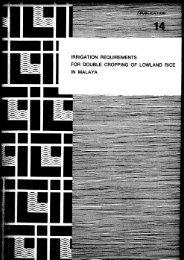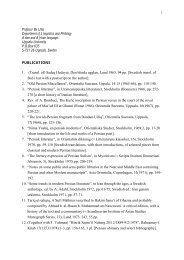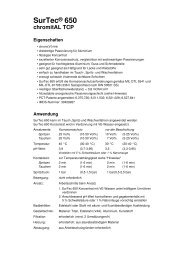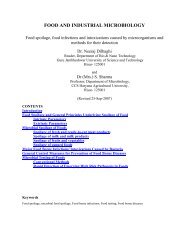On the Future of Indigenous Traditions - Munin
On the Future of Indigenous Traditions - Munin
On the Future of Indigenous Traditions - Munin
You also want an ePaper? Increase the reach of your titles
YUMPU automatically turns print PDFs into web optimized ePapers that Google loves.
2.8 Which direction is <strong>the</strong> ‘development’ politics<br />
leading <strong>the</strong> Adivasis into?<br />
The government launches very ambitious development plans to deal with <strong>the</strong> wider<br />
contemporary political and social realities <strong>the</strong> Adivasis in Jharkhand face. It is seen<br />
that soon after <strong>the</strong> Jharkhand government was formed, <strong>the</strong>y have signed more <strong>the</strong>n 40<br />
memorandum <strong>of</strong> understanding (MoU) 78 with big companies. These companies who<br />
have <strong>the</strong>ir shares with foreign and multinational agencies, invited to Jharkhand for<br />
fur<strong>the</strong>r industrial development and industrial expansion and for exploitation <strong>of</strong> its<br />
natural resources. These companies’ field <strong>of</strong> operation, exploration and exploitation<br />
extends not only in Jharkhand but to <strong>the</strong> adjoining states. As stated earlier, Jharkhand<br />
is <strong>the</strong> richest natural and mineral resource areas in <strong>the</strong> country, and <strong>the</strong> challenge for<br />
<strong>the</strong> Adivasis here is much greater.<br />
This whole region has become an industrial and mining magnet. Here <strong>the</strong> Adivasi or<br />
indigenous peoples have been exploited, and continue to be exploited to <strong>the</strong> maximum<br />
in all respects. Areeparampil observes that <strong>the</strong> Adivasis in Jharkhand are<br />
‘systematically’ and ‘methodologically’ being dispossessed <strong>of</strong> <strong>the</strong>ir ownership <strong>of</strong> <strong>the</strong>ir<br />
livelihood resources and <strong>the</strong>ir ‘very means <strong>of</strong> human existence’. Among <strong>the</strong><br />
dispossession is <strong>the</strong>ir political autonomy as <strong>the</strong>ir community is becoming fragmented<br />
in <strong>the</strong> name <strong>of</strong> ‘national interest’. This includes an unjust ‘integration’ on unequal<br />
terms and a kind <strong>of</strong> ‘cultural assimilation’ into <strong>the</strong> national mainstream.<br />
These changes are bound to produce social maladjustments when a people who have a<br />
different history are forced to live in administrative conjunction with ano<strong>the</strong>r group<br />
i.e. <strong>the</strong> Biharis, Bengalis and members <strong>of</strong> o<strong>the</strong>r dominant societies, socially and<br />
culturally differ in varied proportions, and still hold <strong>the</strong> key positions in <strong>the</strong> state<br />
administration.<br />
78<br />
From <strong>the</strong> news March 2006, compilation <strong>of</strong> Bindrai Institute for Research Study and Action<br />
(BIRSA) in Ranchi<br />
55

















